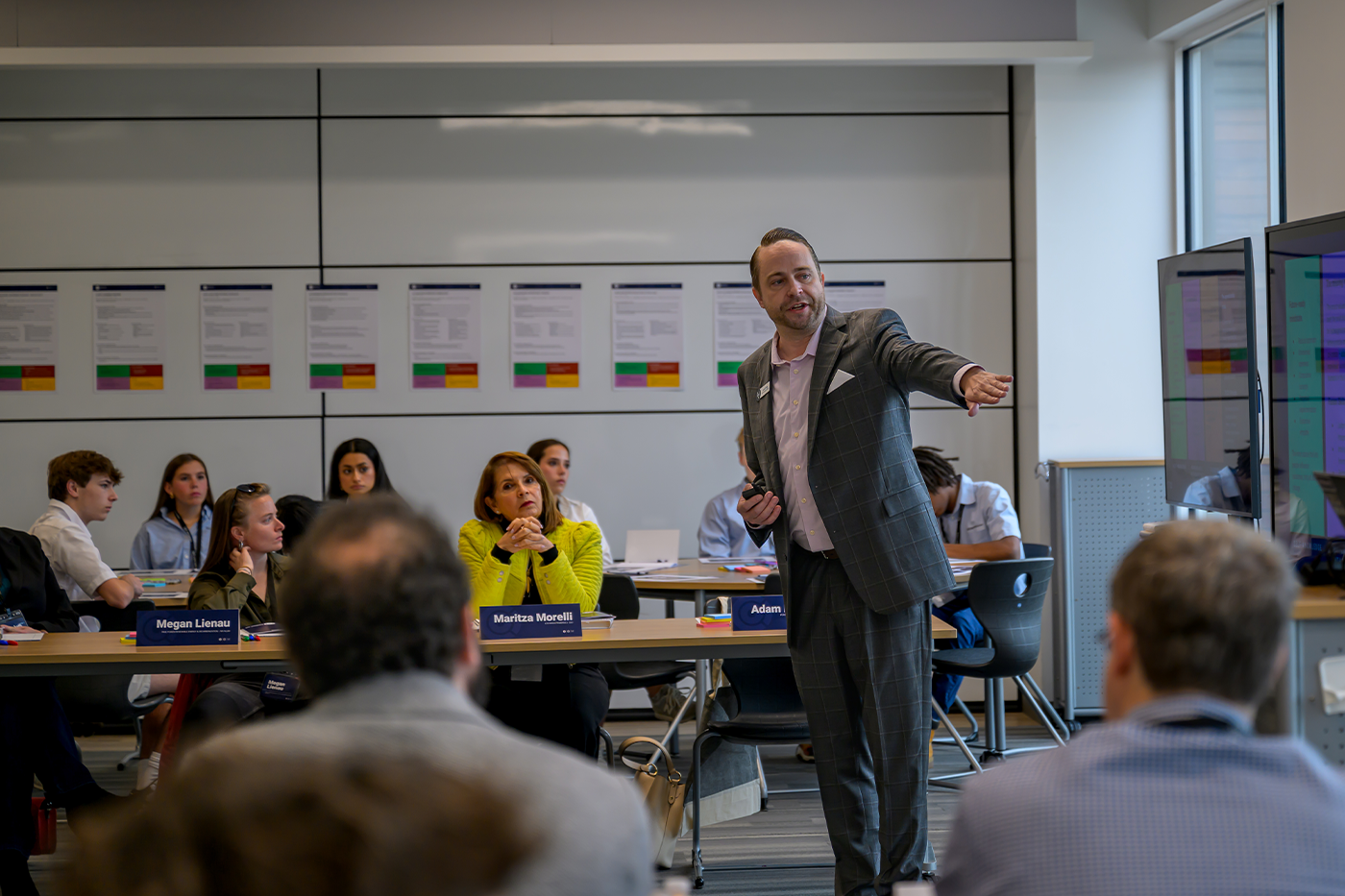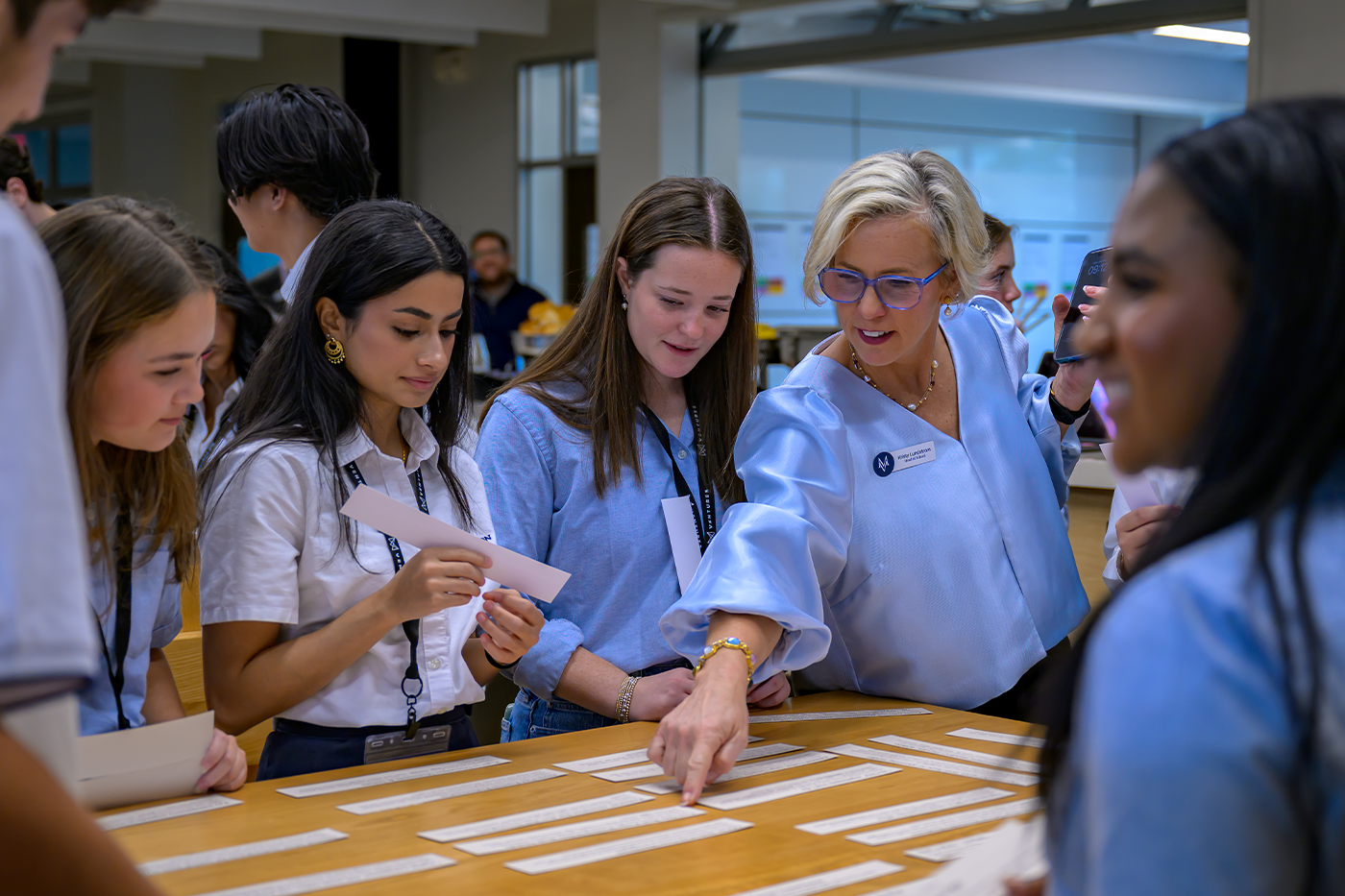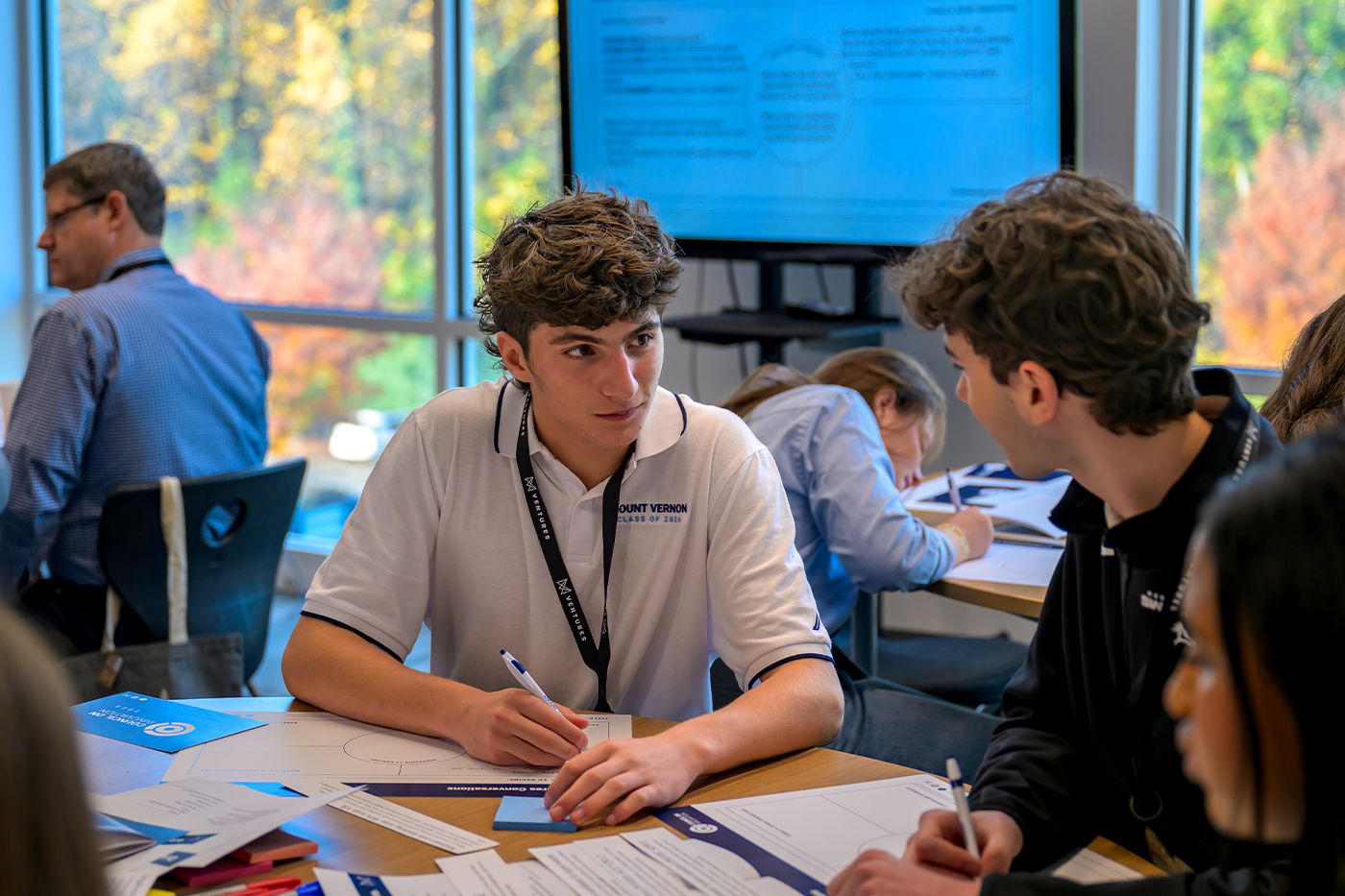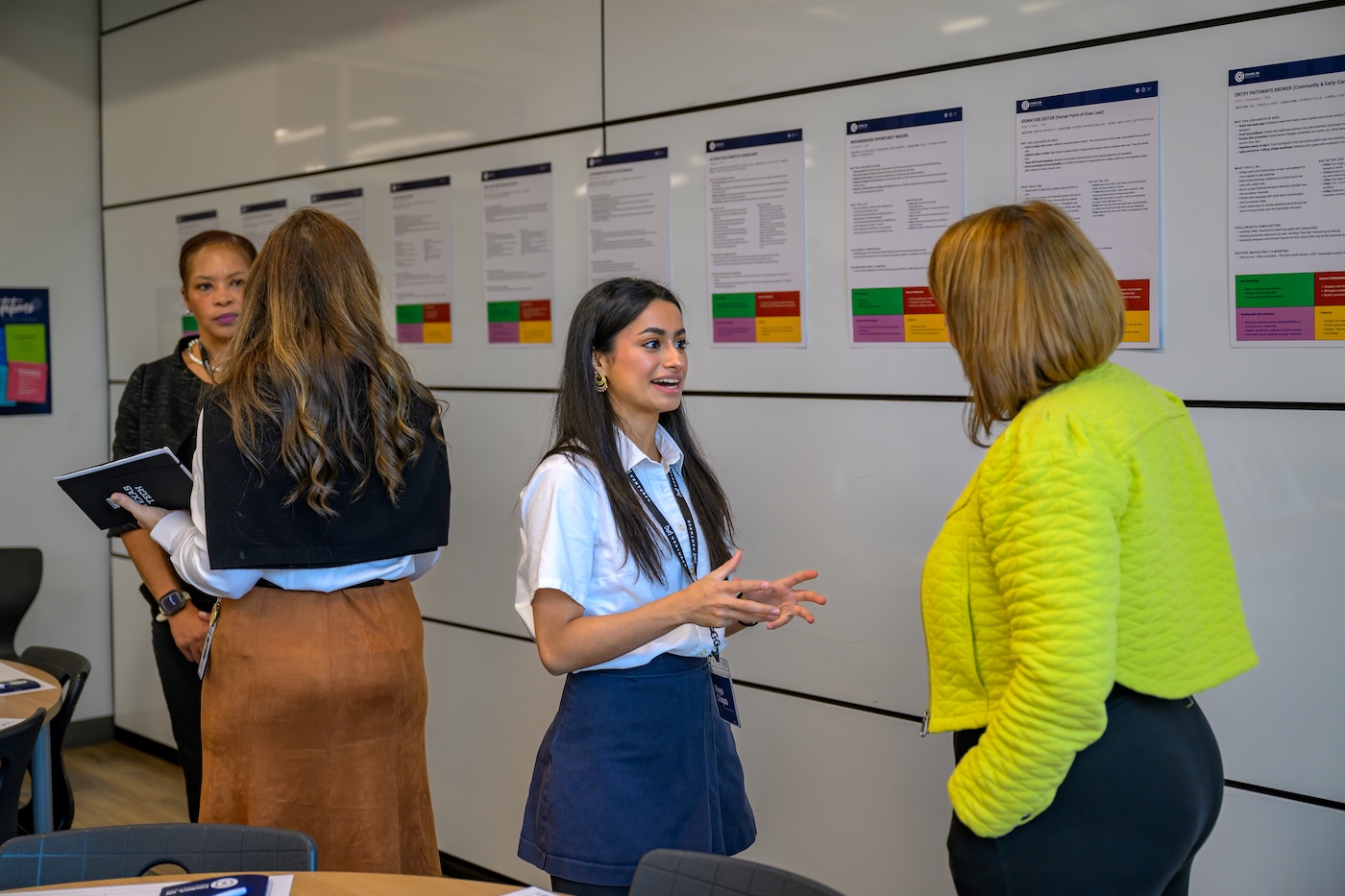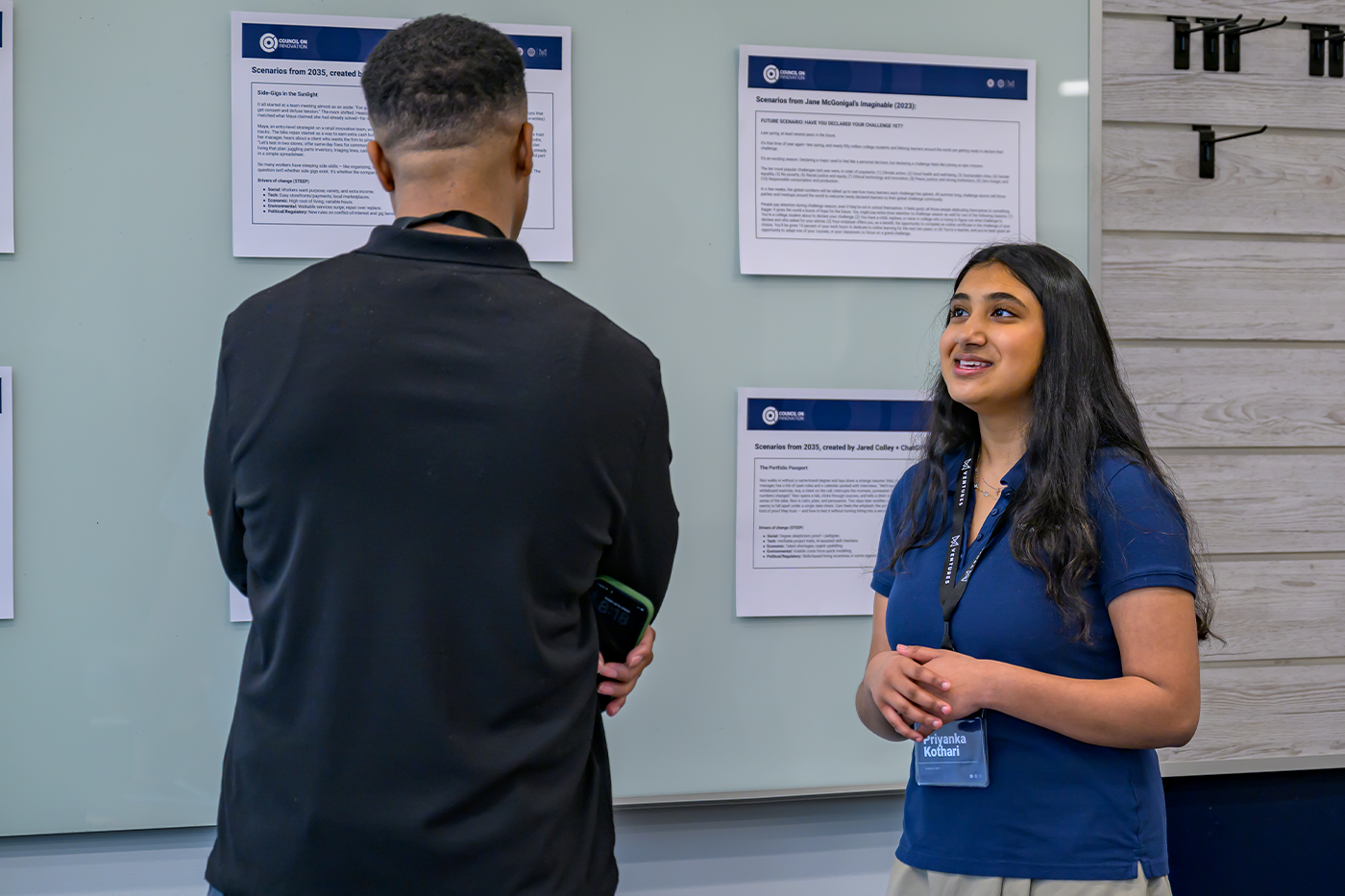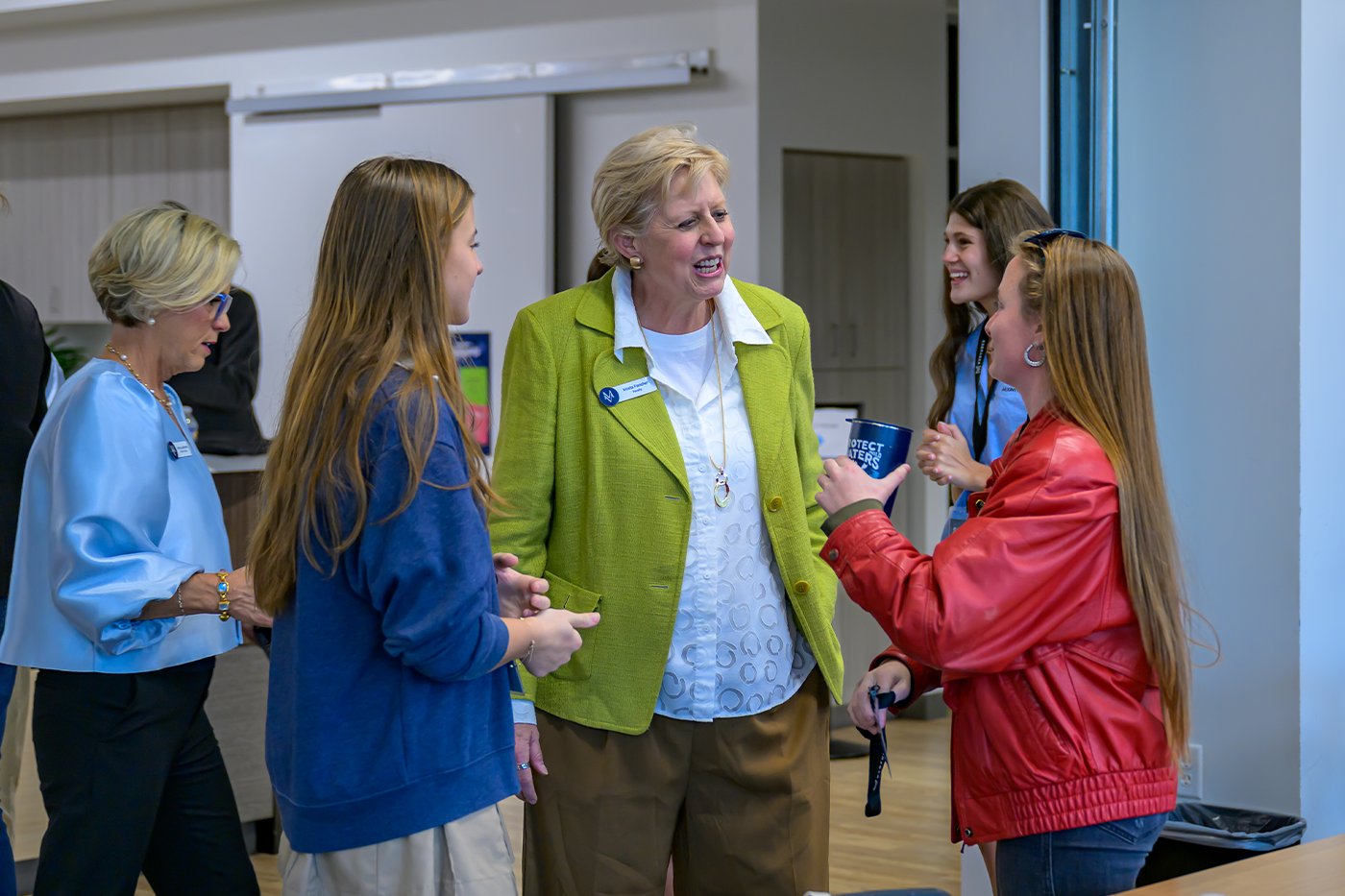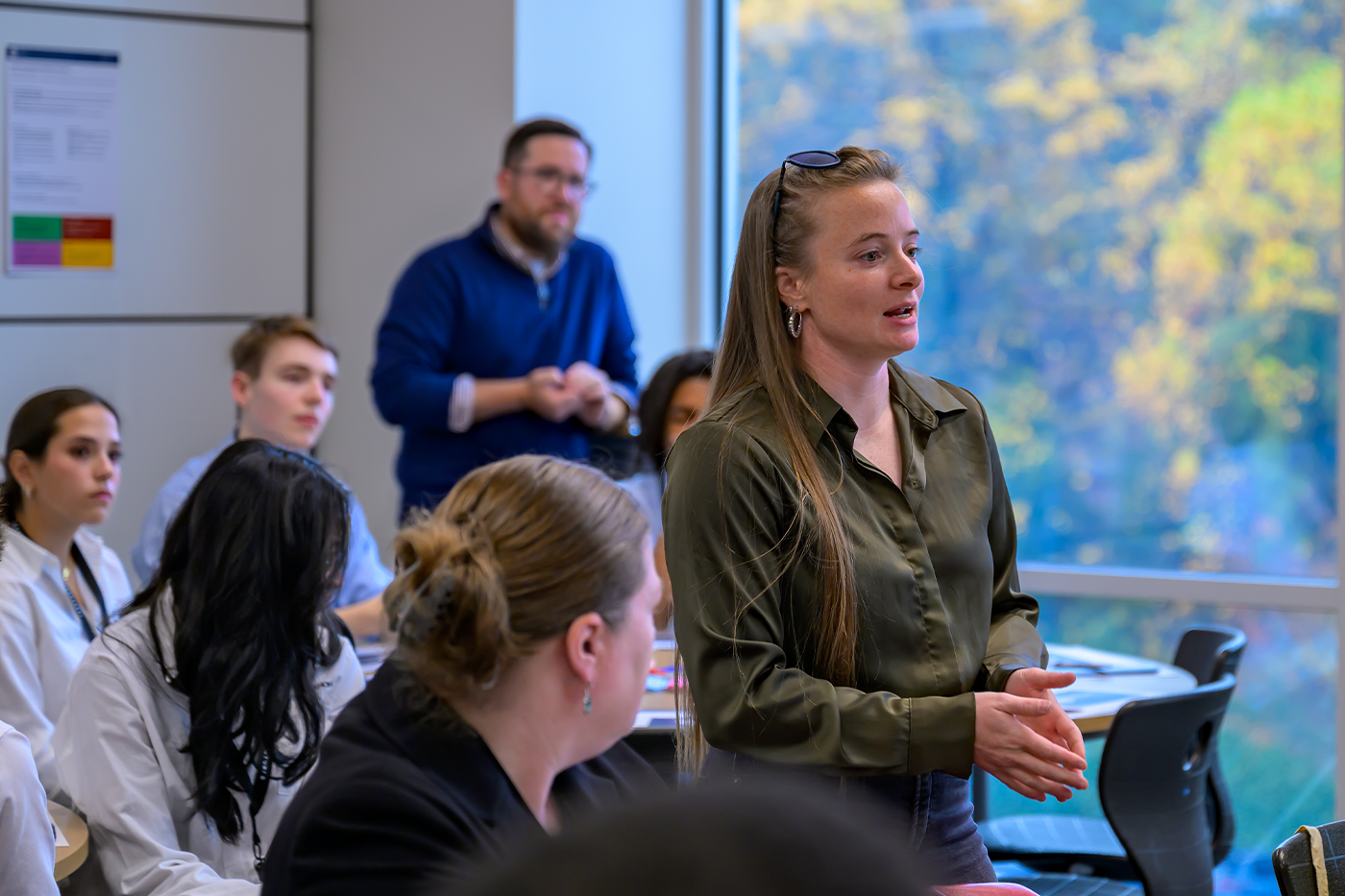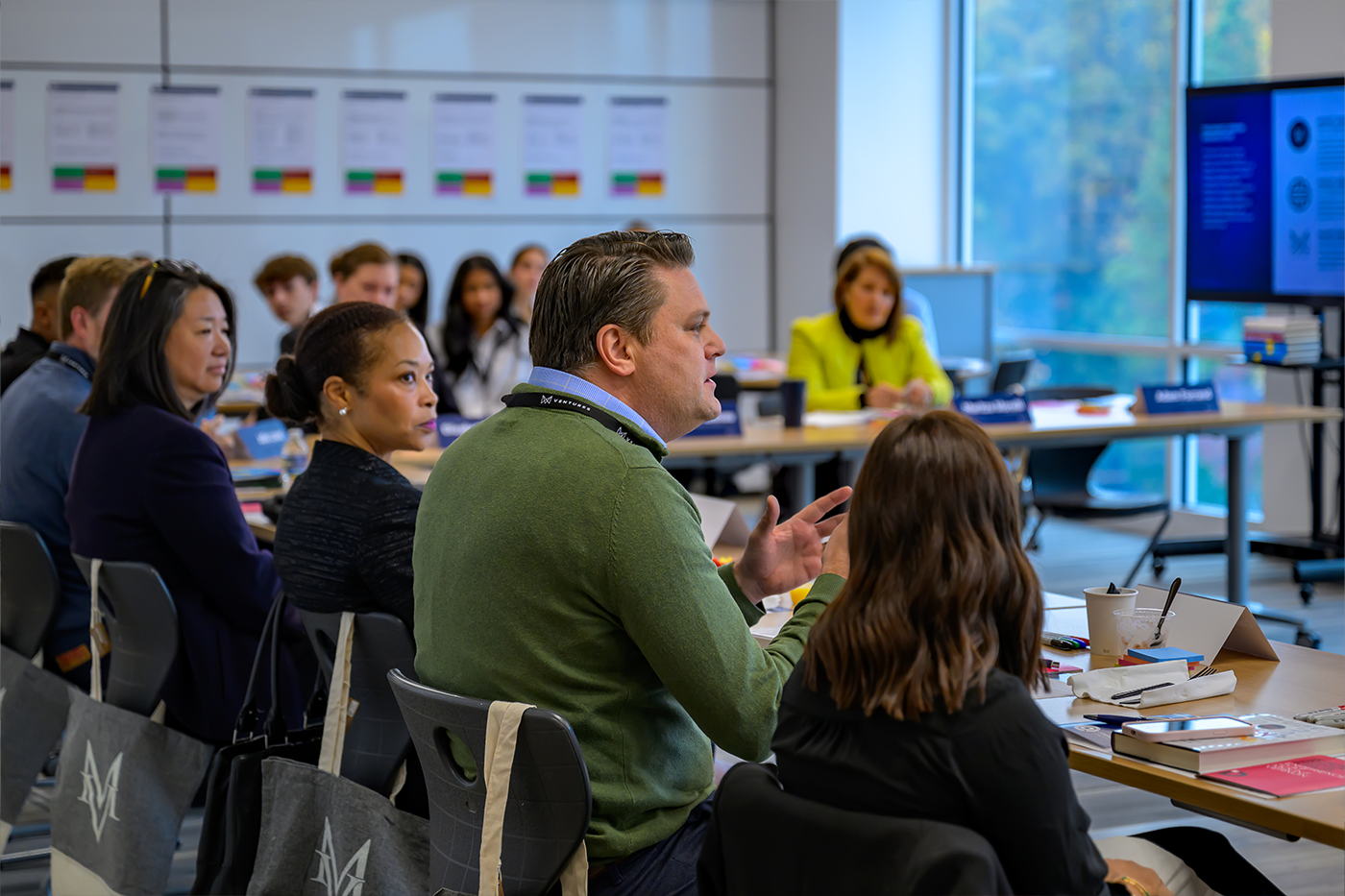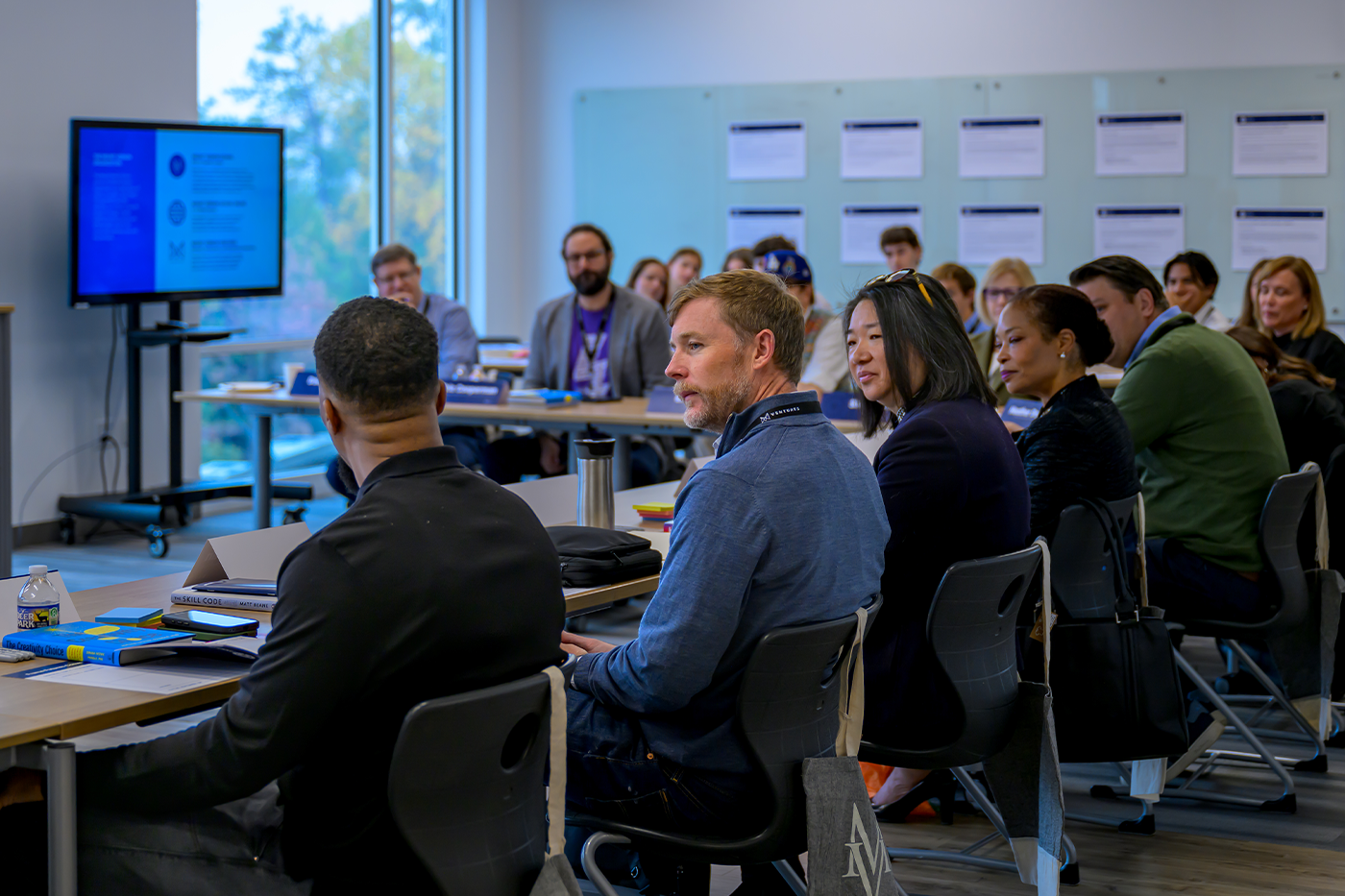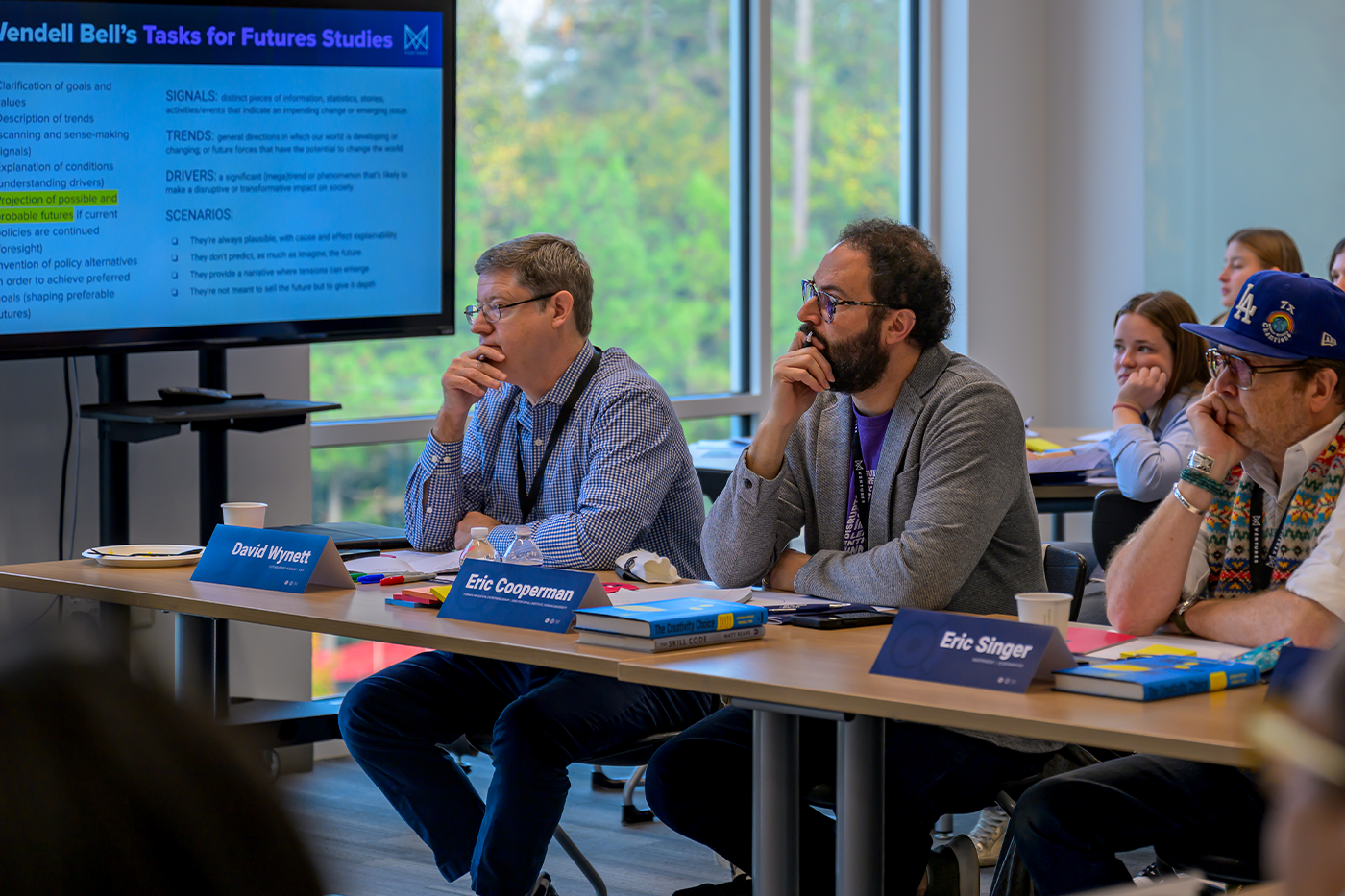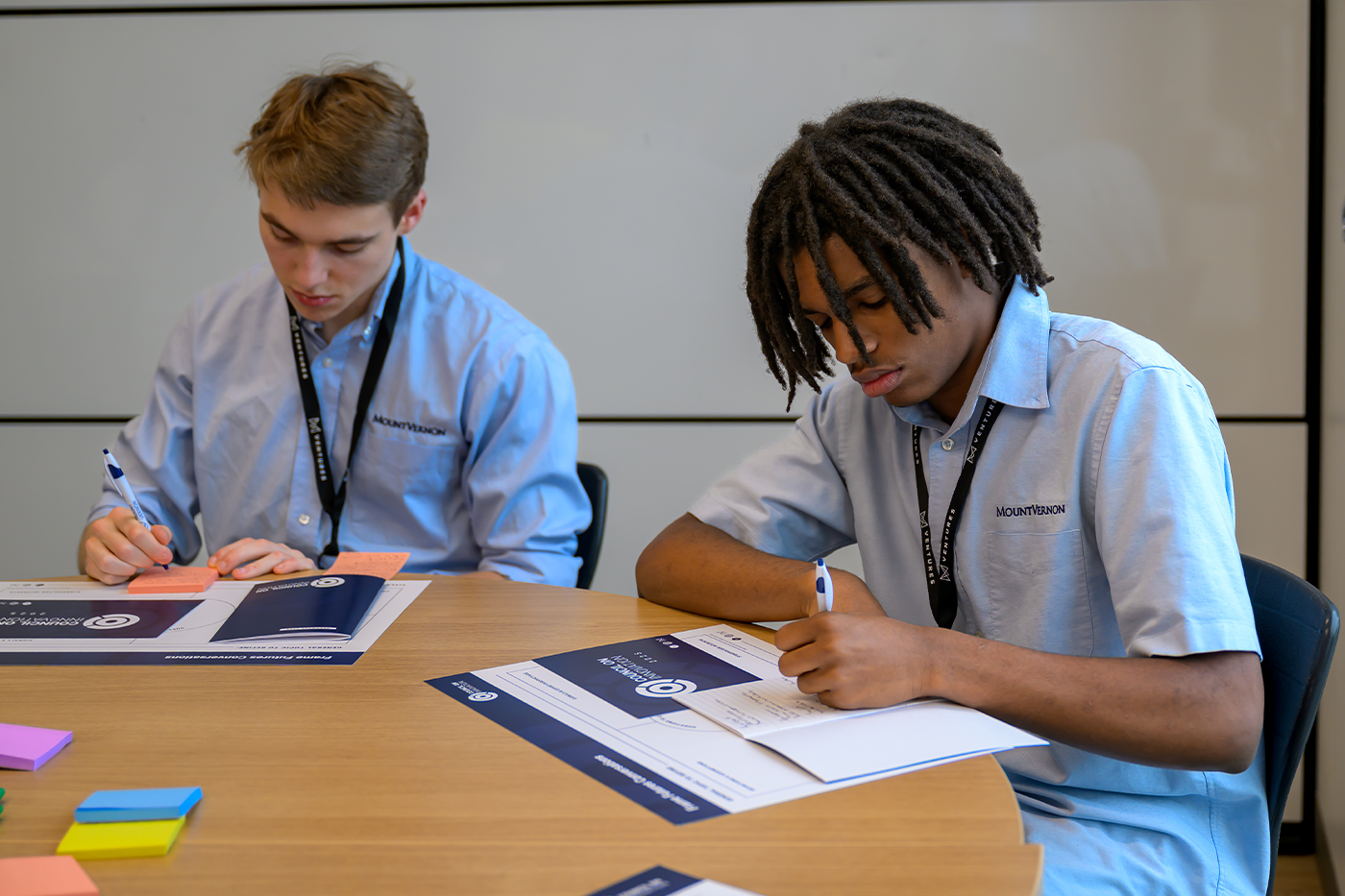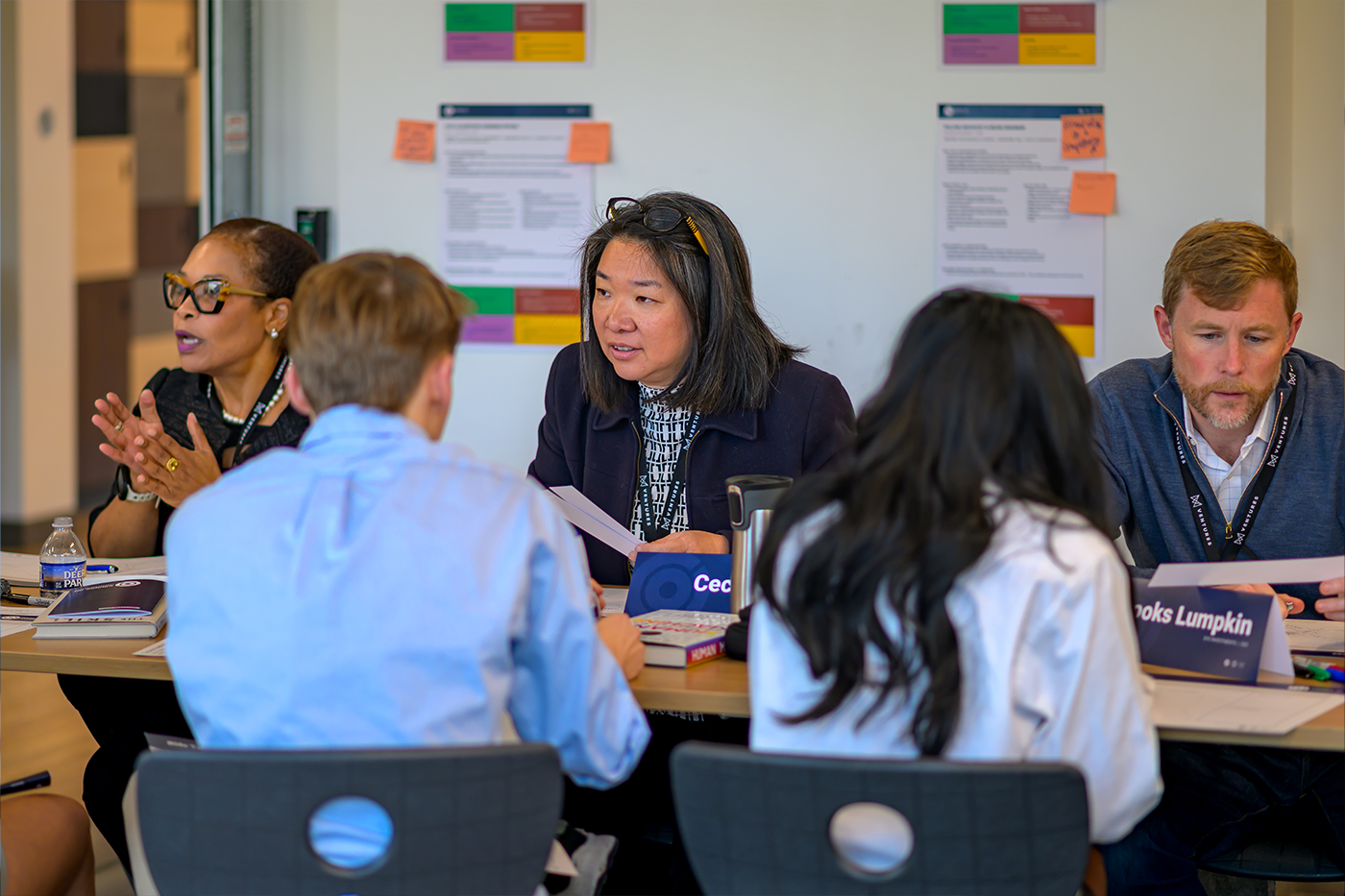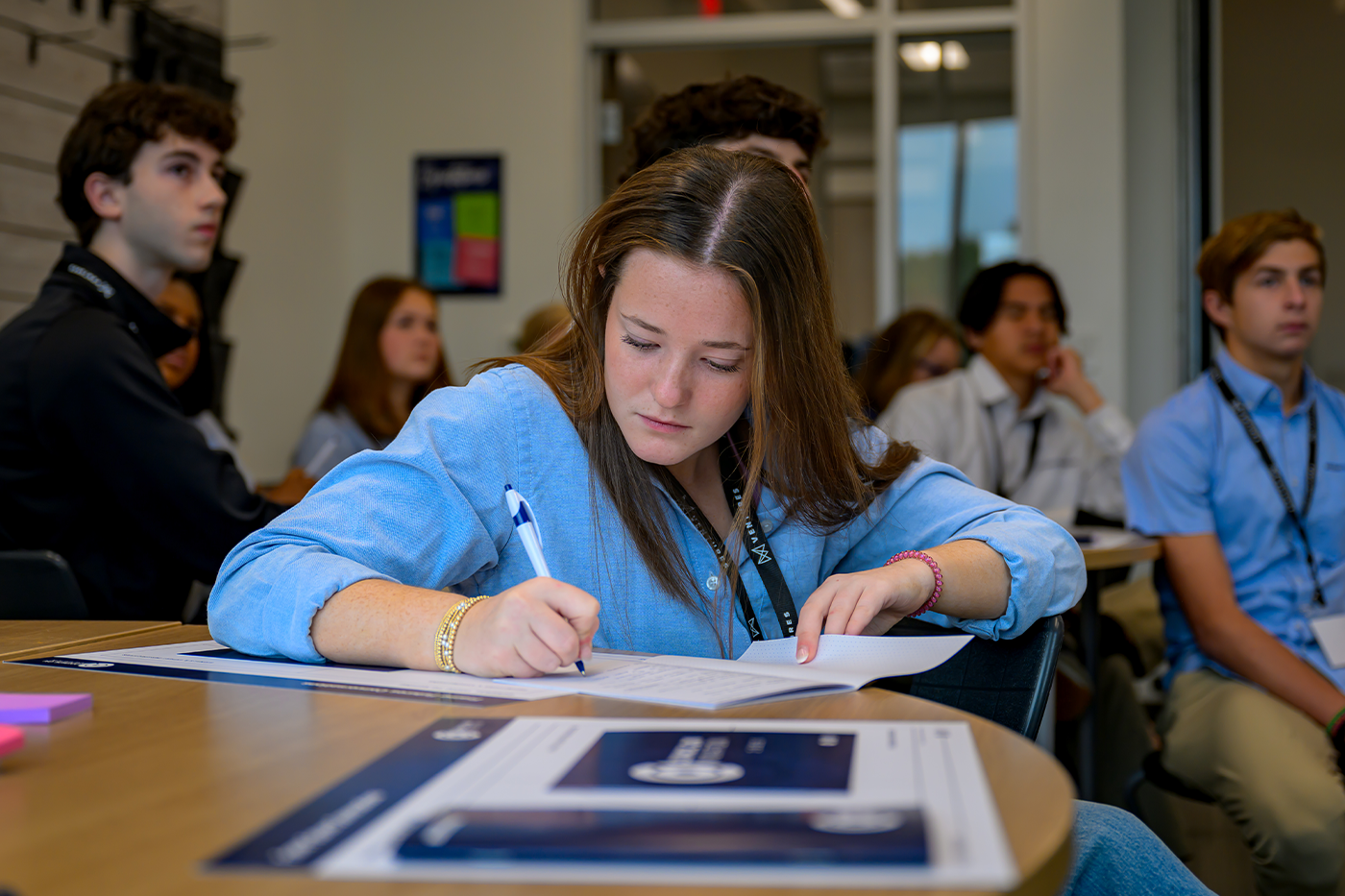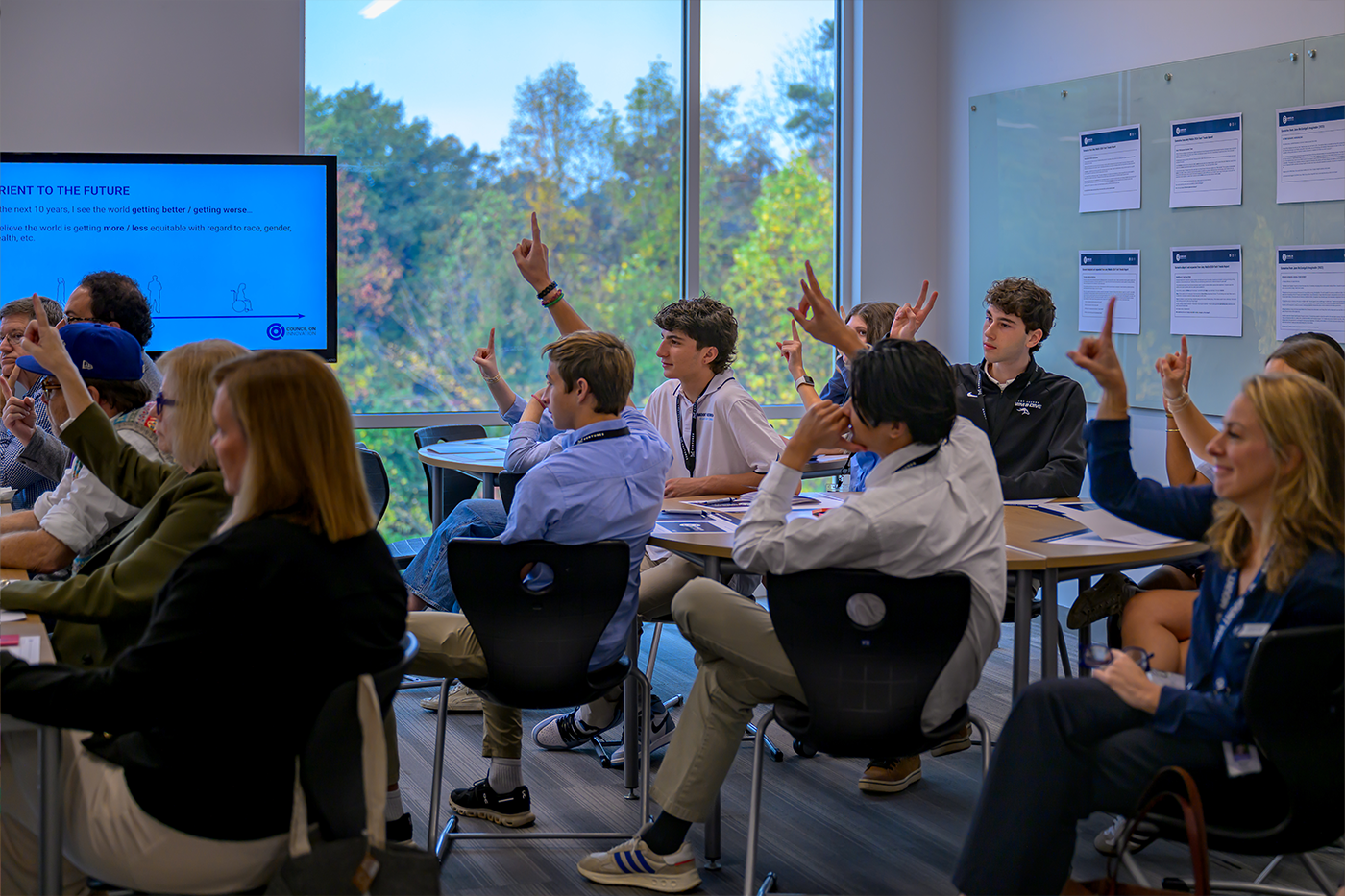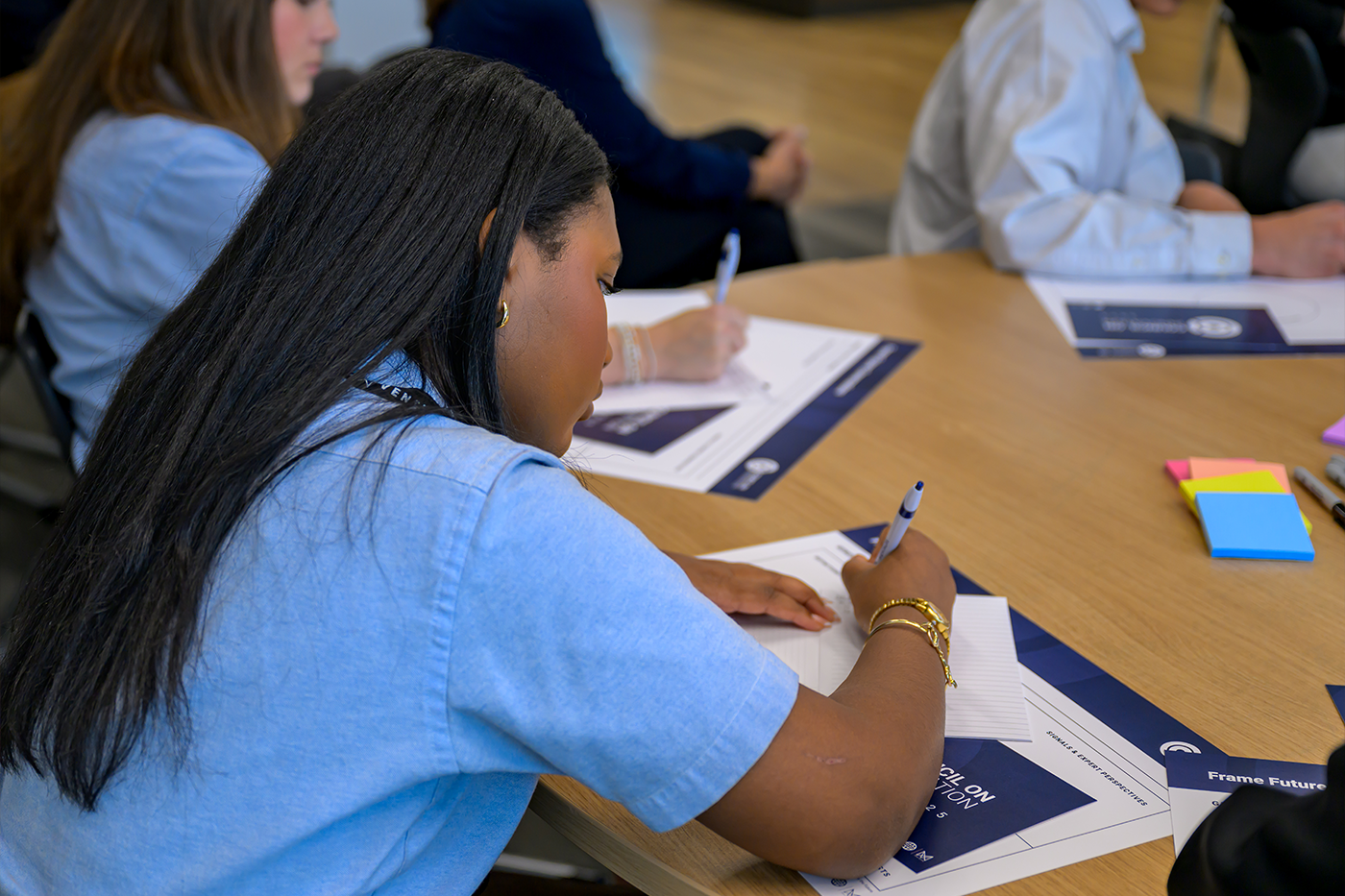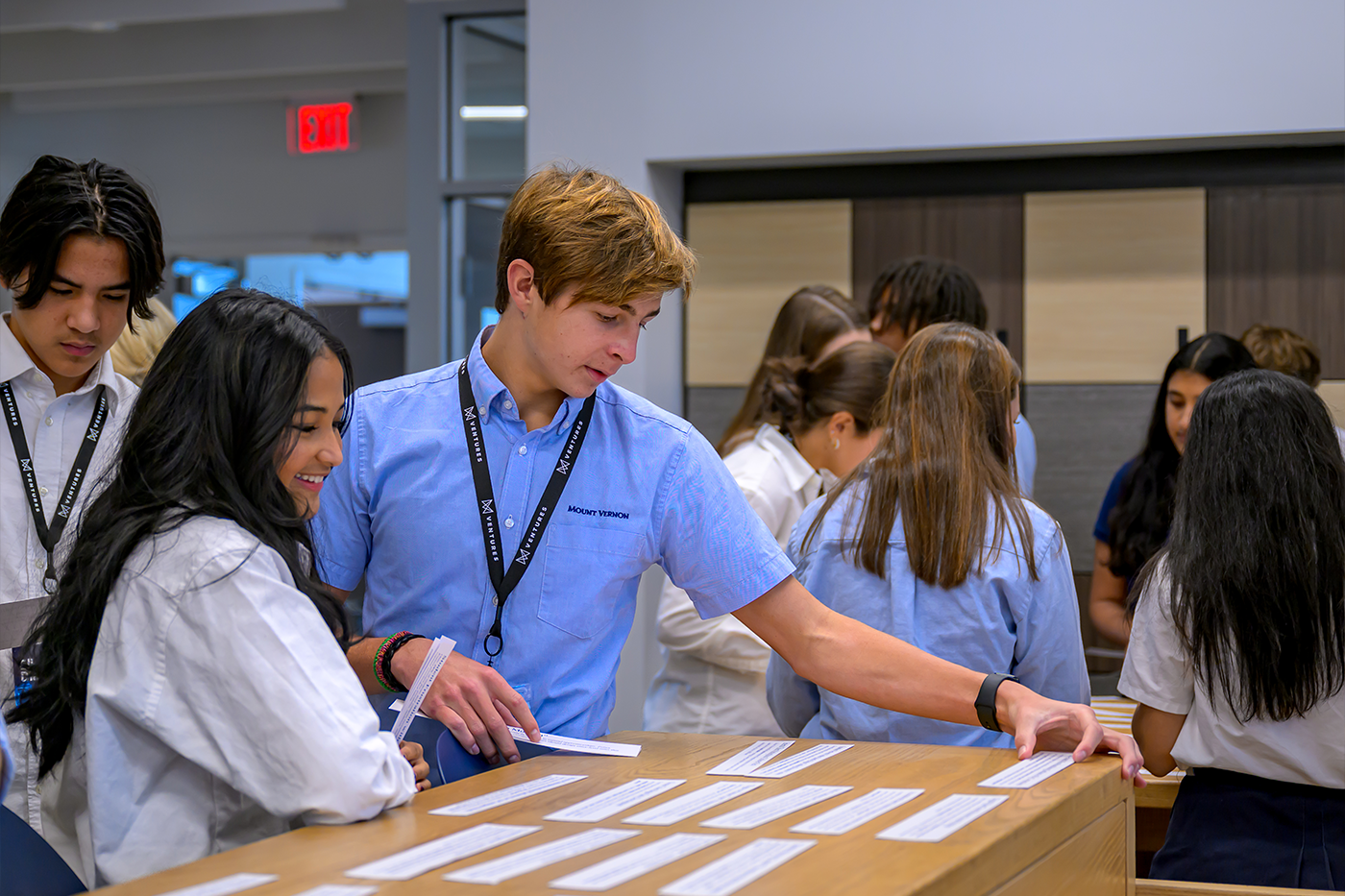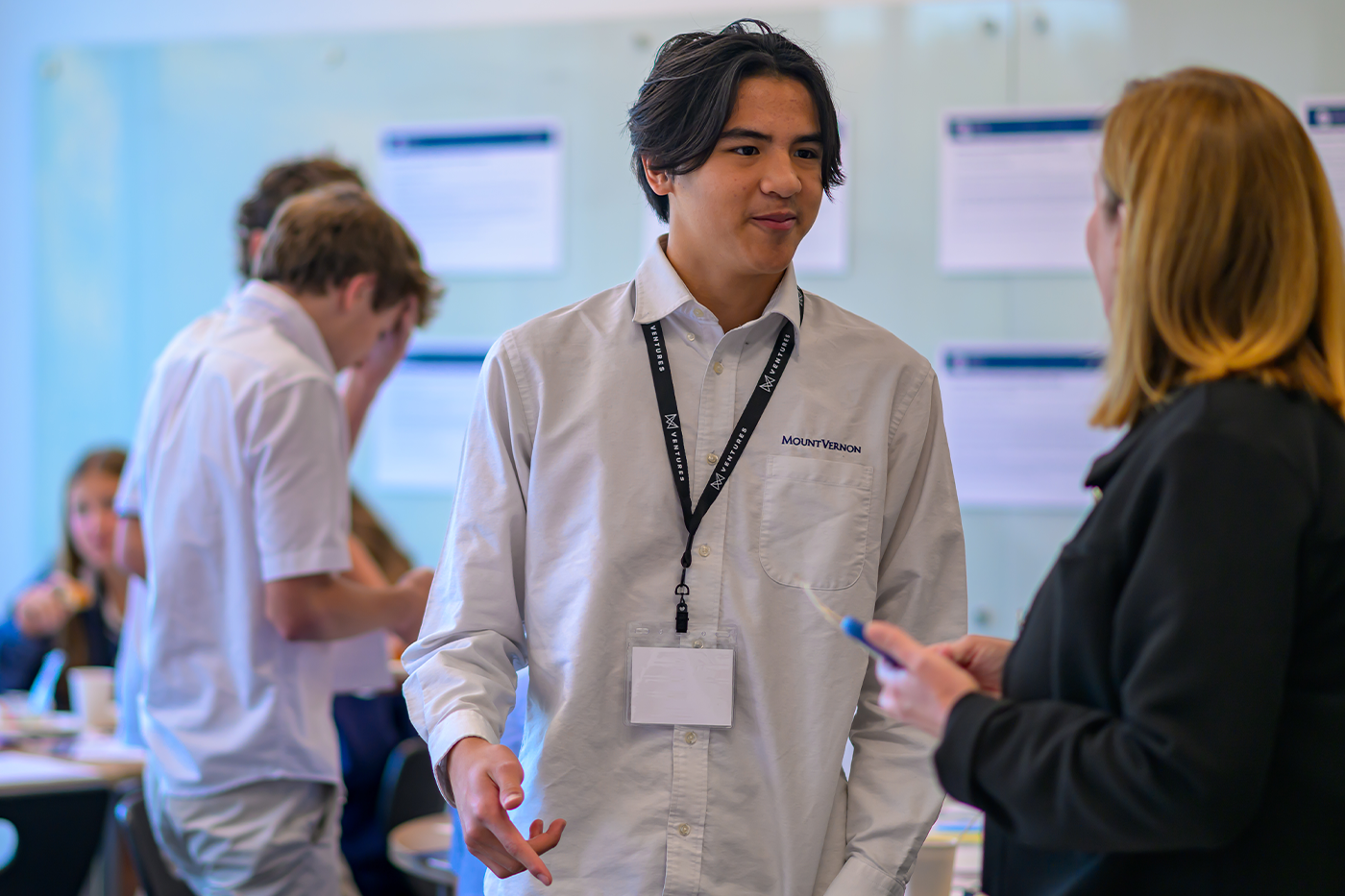On November 7, 2025, Mount Vernon School hosted its Council on Innovation (COI), a dynamic convergence of thought leaders, entrepreneurs, and students collaborating to design what’s next. Guided by Chief Innovation Officer Jared Colley, the day invited participants to look beyond the horizon through signal scanning and scenario design, exploring a series of plausible futures for education, community, and industry.
Mount Vernon Ventures, the School’s research, development, and educational consultancy, developed the concept of the COI. For more than a decade, the Council on Innovation has brought together experts and students to explore the intersection of purpose and possibility. This year’s Council focused on the discipline of futures thinking, how small signals in today’s world can inform bold decisions for the decade ahead.
Under Colley’s direction, participants moved from inspiration to action. Teams scanned the landscape for emerging signals, making sense of them by examining major drivers of change across technology, climate resilience, civic engagement, and the future of work. They then translated those signals and drivers into visionary scenarios. Together, they explored the questions: What skills will be most essential for entry-level workers to be successful? And what kind of workplace environment will foster growth and success?
The 2025 Council on Innovation drew an extraordinary group of leaders representing a spectrum of industries and perspectives:
- Brooks Lumpkin, CEO, DYO Investments
- Cathea Simelton, Managing Partner, PMP/JOLT Consulting
- Cecilia Mao, Chief Product Officer, Equifax
- Constantin von Vieregge, President & CEO, Messe Frankfurt, Inc.
- David Wynett, CEO, Futureverse Museum
- Demarco Thomas, Founder, MetroMax Group
- Elizabeth Awbrey, Culture & Peoples Operations Leader, City of Sandy Springs
- Eric Cooperman, Director of Hill Institute for Innovation & Entrepreneurship, Furman University
- Eric Singer, Independent Screenwriter
- Heather Dexter, President, Emory Healthcare Regional Hospital Division
- Julie Luker, Brand Builder and Communications Executive, JWL Consultant
- Maritza Morelli, CEO, Los Niños Primeros
- Megan Lienau, Mount Vernon Class of 2018, Pave Power, Renewable Energy & Decarbonization
- Shari Lotz, CHRO, Zep Inc.
- Yvett Evans, Client Partner, Meta
This remarkable mix of expertise together with our students fostered genuine cross-pollination among business, education, government, sustainability, media, and healthcare.
From signals to futures
The Council followed a focused design sprint that mirrored Mount Vernon’s own approach to innovation:
- Signal Scanning – Participants identified trends shaping the next decade, from AI as a learning partner to the decentralization of communities and the expansion of virtual and immersive experiences.
- Trend Reframing – Teams converted these insights into “what if” questions, such as What if classrooms became borderless? Or how might purpose-driven learning reshape the future workforce?
- Scenario Building – Cross-disciplinary teams of students and professionals mapped out a series of future states, defining potential opportunities and challenges within each.
Students as co-designers of the future
True to Mount Vernon’s mission, students weren’t just observers. They were co-designers, contributing fresh thinking grounded in empathy, creativity, and a deep understanding of purpose. Their curiosity challenged assumptions, and their imagination fueled new possibilities. For many executives, the experience of designing with students—not for them—was both refreshing and transformative.
The Council on Innovation is more than a single day of ideation; it’s a reflection of Mount Vernon’s identity as a living laboratory for human-centered design and innovation. The experience reinforces key ideas that define the school’s ethos:
- Real-world relevance: Students and professionals work together on authentic problems that matter.
- Cross-sector collaboration: When different disciplines collide, fresh insight emerges.
- Empowered student agency: Learners are not passive recipients of knowledge but architects of their own futures.
- Purpose-driven progress: The work aligns with the theme of Mount Vernon’s strategic plan—Journey of Purpose—encouraging every learner to connect personal passion with meaningful impact.
COI 2025 affirmed Mount Vernon’s role as a hub for forward-thinking design and courageous conversation. By connecting students with visionary leaders, the School continues to expand what’s possible in education, helping learners not only navigate the future but actively design it.
One of the participants shared their thoughts on the experience, saying, “The level of care, collaboration, and forward-thinking that was present in the room spoke volumes. It is clear that MV is not only preparing students academically, but also nurturing their ability to lead, create, and contribute meaningfully in an ever-changing world.”
Another participant commented, “Today’s experience makes me feel optimistic about the future workforce.”
As Jared Colley reflected at the end of the day, “The future isn’t something that happens to us. It’s something we co-create.”
At Mount Vernon, that future is already taking shape.
